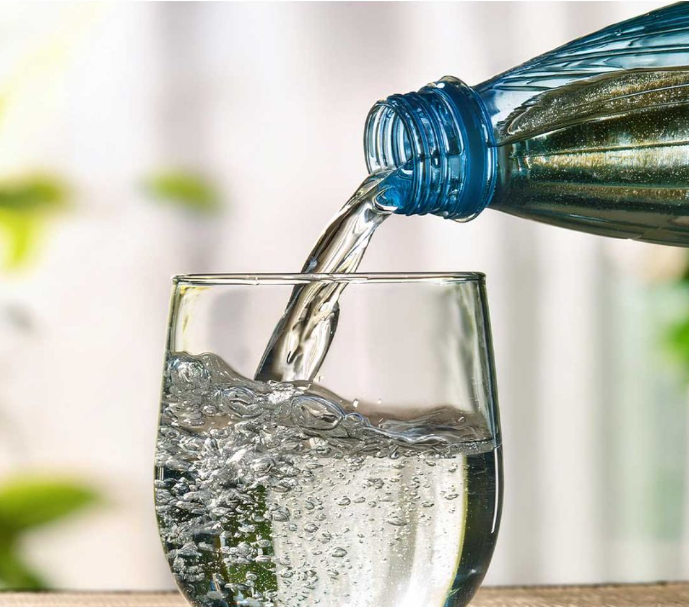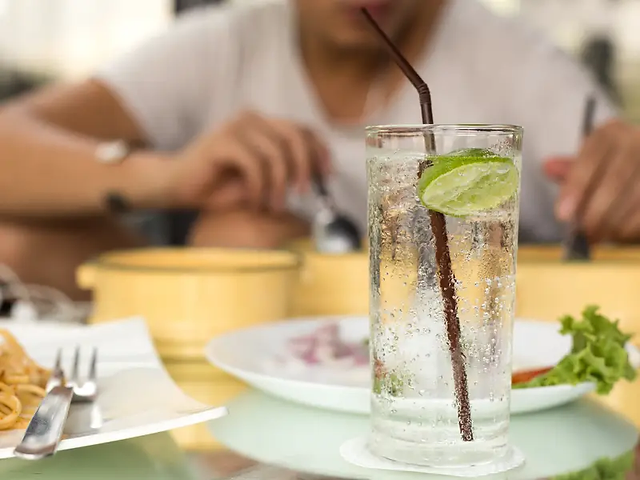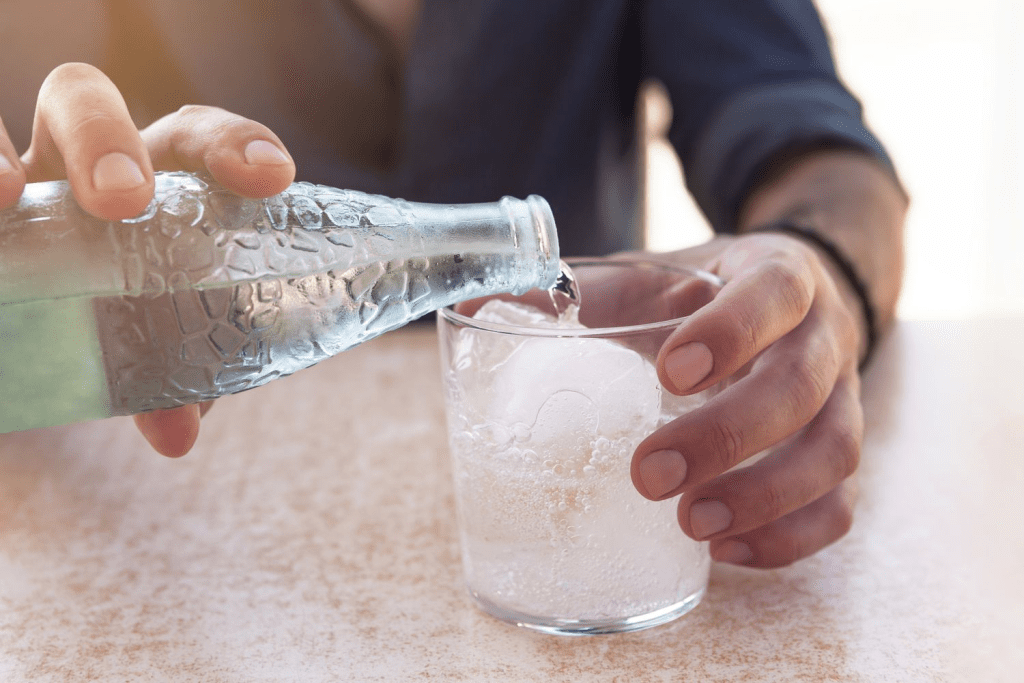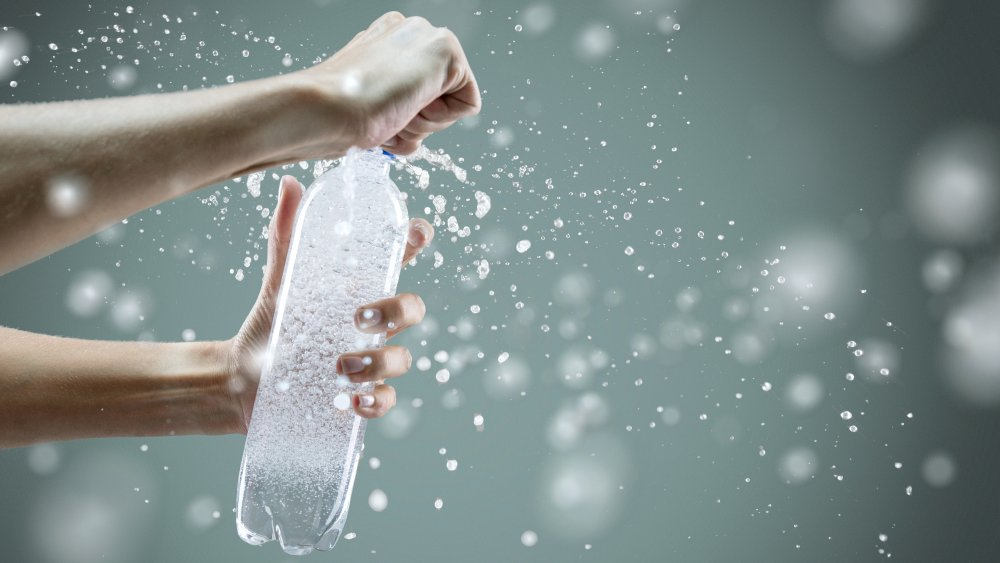Sparkling water, also known as carbonated water, has become a trendy go-to beverage for those looking to cut back on sugary drinks. Its bubbly texture and zero-calorie profile make it an attractive alternative to sodas. But are there hidden health concerns lurking behind this refreshing drink? While sparkling water may seem like a guilt-free option, it’s worth examining some of the lesser-known health impacts. Let’s dive into the potential downsides and how to enjoy your favorite fizzy drink without compromising your health.

What Exactly Is Sparkling Water?
Before we get into the potential health concerns, let’s clarify what sparkling water actually is. Sparkling water is simply water that’s been infused with carbon dioxide under pressure, creating those beloved bubbles. There are a few different types of sparkling water to consider:
- Natural sparkling water: Contains natural minerals from the spring source.
- Club soda: Has added minerals like sodium and potassium salts.
- Tonic water: Contains added sugars and quinine, a compound with a bitter taste.
Each variety brings its own set of health implications, particularly when additives like sugar or sodium are involved.
Why People Love Sparkling Water
For many, sparkling water feels like a happy medium between hydration and enjoyment. Its fizz makes it a satisfying choice for those looking to reduce their intake of sugary sodas or caffeinated drinks. It’s often marketed as a healthier alternative because it typically has no calories, no sugar, and no additives—although this can depend on the brand and type you’re choosing.
But while the benefits are clear, there are potential risks that are often glossed over. Let’s take a closer look at the health concerns that might not be on your radar.
Dental Health: The Effects of Carbonation on Your Teeth
One of the primary concerns with sparkling water is its potential impact on your teeth. When carbon dioxide dissolves in water, it creates carbonic acid. This acid can erode tooth enamel over time, particularly if consumed in large amounts.
While sparkling water is not as acidic as soda or citrus juices, regular consumption can still contribute to enamel erosion. This can lead to increased sensitivity and a higher likelihood of cavities, especially if you’re sipping sparkling water throughout the day. A simple solution? Rinse your mouth with plain water after drinking to help neutralize the acid.
Digestive Discomfort: Bloating and Gas
If you’ve ever felt bloated after drinking sparkling water, you’re not alone. The carbonation in sparkling water releases gas into your digestive system, which can cause bloating and discomfort. For individuals prone to gastrointestinal issues, such as irritable bowel syndrome (IBS), sparkling water may exacerbate symptoms.
While occasional bloating might not be a significant issue, chronic discomfort could signal that your body isn’t reacting well to the fizzy bubbles. Reducing your intake or opting for still water could ease these digestive woes.

Bone Health: Separating Myths from Reality
There’s a persistent myth that carbonated beverages, including sparkling water, can weaken bones and lead to osteoporosis. The concern stems from studies on cola and other sugary soft drinks, which have been linked to reduced bone density due to high phosphoric acid levels.
However, plain sparkling water doesn’t contain phosphoric acid, and current research doesn’t support the idea that it negatively impacts bone health. So, while it’s important to be cautious about sugary sodas, plain sparkling water is not likely to harm your bones.
Acidity and Your Body: Concerns for Those with Acid Reflux
Although sparkling water is less acidic than soda, it still has a mildly acidic nature. For those with acid reflux or gastroesophageal reflux disease (GERD), this acidity can trigger symptoms like heartburn and indigestion.
If you suffer from acid reflux, it’s a good idea to monitor how sparkling water affects your symptoms. Sticking to still water or choosing varieties with lower acid content can help prevent discomfort.
Artificial Additives: What’s Hiding in Your Sparkling Water?

Not all sparkling waters are created equal. Some brands add artificial sweeteners, flavors, and preservatives to enhance the taste. These additives may raise concerns for those sensitive to artificial ingredients or trying to avoid unnecessary chemicals in their diet.
Artificial sweeteners, such as aspartame or sucralose, can affect metabolism and may have long-term health effects that aren’t yet fully understood. If you enjoy sparkling water, opt for plain or naturally flavored varieties with no added sugars or artificial ingredients to minimize potential risks.
Hydration: Is Sparkling Water as Effective as Regular Water?
When it comes to hydration, both still and sparkling water can keep you hydrated. However, some research suggests that sparkling water might be slightly less effective than still water because of its gas content. The bubbles can give you a false sense of fullness, which might lead you to drink less overall.
That said, if sparkling water helps you avoid sugary sodas and encourages you to drink more throughout the day, it can still be a great option for maintaining hydration. Just don’t rely on it as your sole source of fluids.
How to Enjoy Sparkling Water Safely

If you love sparkling water, there’s no need to cut it out of your life entirely. Here are a few tips to enjoy it without worrying about health concerns:
- Limit consumption: Drinking sparkling water in moderation—just a few times a week—can help prevent dental and digestive issues.
- Choose wisely: Opt for plain or naturally flavored sparkling waters without added sugars, sweeteners, or artificial ingredients.
- Rinse your mouth: After drinking sparkling water, rinse your mouth with plain water to neutralize acid and protect your teeth.
Alternatives to Sparkling Water
If you’re looking for alternatives that offer the same refreshing taste without potential downsides, consider these options:
- Infused still water: Add fresh fruits, herbs, or cucumber slices to your water for a natural, flavorful twist.
- Herbal teas: Cold-brewed herbal teas can be a refreshing and healthy alternative to sparkling water.
- Coconut water: Hydrating and naturally sweet, coconut water offers electrolytes and is great for post-workout hydration.
Conclusion: Making Smart Choices About Sparkling Water
Sparkling water can be a fun, flavorful alternative to sugary sodas if you enjoy it in moderation and make informed choices. While there are potential health concerns, such as dental erosion, digestive discomfort, and artificial additives, these risks can be minimized with mindful consumption.
Ultimately, the key is balance. By staying aware of the potential downsides and choosing high-quality sparkling waters without unnecessary additives, you can continue enjoying that satisfying fizz while staying aligned with your health goals.


